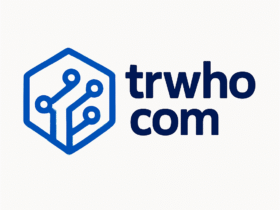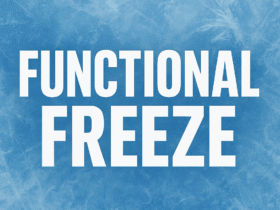Introduction
One of the most recent outrageous statements ever made by Former U.S. President Donald trump threatens economic measures to acquire canada as 51st state has turned heads around the world. While the Father states this could be an unrealistic fun world it has substantial consequences. The first part of this article looks at Trump’s statement in itself before going on to analyze the global reaction to his words, not for the first time, and attempt to provide some historical context to the seemingly controversial remark.
Trump’s Proposal: An Overview
At his 2024 rally, Trump famously stated the country may wish to buy Canada and make it into the country’s 51st state. He had a geopolitical strategy and economic ambition to do this. Trump felt that integration between the two countries would be in the best interests of both in terms of mutual benefit due to Canada’s proximity (geographically and strategic alliance) of its natural resources.
Historical Context: The U.S. and Canada’s Relationship
For Canada as well as the US, their relationship went through periods of collaboration and tension. Historically the two nations share a very long border of over 5 500 miles making for the largest bordering countries of the world. Economically the U S is Canadas’ top trading partner.
Of course, discussing the idea of Canada joining the.. is nothing new, but has never really been a subject for serious dialogue. At the beginning of the 19th century, there was at least the fact that some Americans — and not the only Americans — had the idea of the annexation of Canada which was soon forgotten with each country looking in different directions. This historical concept remains open for a discussion specified in a modern sense, which Trump’s statement reopens.
What Economic Measures Trump May Mean as Leverage
are some of the strategies Trump could use to force Canada to buy it via economic means. Here are some possibilities:
Tariffs and Trade Sanctions
During his entire Presidency, Trump would habitually use tariffs to illustrate downsize trade relations – typically with China and Mexico. During the negotiation, Trump could theoretically thus force the Canadian government to enter into terms for joining the U.S. by introducing harsh tariffs on Canadian exports.
Energy and Resource Leverage
Canada has natural resources, oil, gas, and minerals to be blessed. Trump may have been alluding to using leverage in the energy sector when it comes to applying economic pressure. For example, the U.S. can threaten to cut down energy exports to Canada or to close energy trade on unfavorable terms.
Diplomatic Isolation
In addition to diplomatic pressure to isolate Canada on the global stage, Trump may have been referring to the economic initiative. As such, if Trump decides to align Canada more with countries that treat Canada as a secondary power on the world stage, Trump creates an environment in which Canada doesn’t have a close friend in the U.S. and to an extent, would push Canada to have the U.S.-Canada friendship cut or join it more closely.
The Legal and Constitutional Challenges
It is not a piece of cake to take Canada as a state of the U.S. by just signing an agreement, making a deal, etc. It would face huge legal challenges. Here are some hurdles:
Constitutional Hurdles
The U.S. Constitution doesn’t specify a certain method for annexing another country. No one under the initiative could make a big change without a new amendment – or at least a major reinterpreting of the existing framework. The implementation of gross national product would also necessitate the negotiation of Congress, the United States Senate, and the Canadian government.
Canadian Sovereignty
Since Canada was its own country, it would have to agree to such a proposal.
Canada’s Reaction: What Would Canadians Think?
Thus, Trump’s statement sounds bombastic, but it is also worth asking how the Canadian public would react to a similar suggestion. Most Canadians would be against getting absorbed into another and thus would like to be continuing an independent sovereign nation.
But it does have a common border and speaks English, so Canadians see their country in fundamental ways quite different from the U.S. and does have a distinct cultural identity. Ottawa and Canadian citizens would never accept an attempt to annex Canada.
Political Parties’ Stance
The Liberal Party the Conservative Party and the New Democratic Party NDP Canada’s major political parties would most likely be against it.
International Reactions: How the World Would Respond
Trump threatens economic measures to acquire Canada as 51st state comments also reminded us that while we are unlikely to dissolve remarks would echo not only in the U.S.-Canada relationship but also in the global geopolitics. It is how this would be responded to by other major powers.
The United Kingdom
The historical relations that Canada has with Britain, its former colonial ruler, could bring fear from the planning when it will acquire the biggest passport in the world. Diplomatic protests and Canadian sovereignty requests could be used by the British government.
Russia and China
It may open Russia and China up to castigate US foreign policy. Any idea of a Canadian annexation would already be grist for such narratives given how both countries like to see themselves as competitors to U.S. global power.
Mexico
It is not yet apparent whether the U.S.–Canada relationship could carry over into Mexico. Such an action would be seen as a move that threatens Mexico’s economic posture in North America and it could even be compelled to deepen its ties with other global powerhouses as well.
The Economic Implications for Both Countries
Bluffing from Trump would hit the US and both countries economically.
For the U.S.
The country will sit on the southern periphery of a block of former Warsaw Pact nations and provide easy connection to Chinese coastal ports in the east, assuming the U.S. doesn’t acquire Canada, or Washington were to refuse access to those ports. However, it may also stress the U.S. economy. For a new territory particularly with a new political and economic solder would mean huge investment in infrastructure and government services;
For Canada
Canada is a wealthy country, and it would lose some of its economic independence. Also, the U.S. economic policies may not be necessarily in the Canadian interest.
Could This Ever Happen? Public Opinion.
Without a doubt, most Americans and Canadians would oppose the proposal to merge both countries.
FAQs
1. But, how was the idea suggested for Canada as the 51st state by Trump?
Even so, while he has maintained that taking Canada would be good for the U.S., because of its natural resources and strategic location, Trump is persuaded that somehow all these other countries will bow down to America and that if they don’t they would face serious consequences. Yet, his remarks might not be a serious policy proposal.
2. Would Canada even come to such an agreement?
It seems highly unlikely. In Canada, sovereignty and national identity are respected, to the extent that there is no significant political or public opinion favorable toward a merger with the United States.
3. What law requires Canada to be any state but a U.S. state?
The United States, according to the present U.S. Constitution, would not be permitted to annex another country. Furthermore, such a proposal would have to be embraced by a majority of Canada, at the risk of having a massive change in Canadian politics and public opinion.
4. That being a proposal, what would the rest of the world do with such a proposal?
A proposal of such a plan would most likely be regarded with skepticism and concern by countries such as China, Russia, the United Kingdom, and many more. All of this could lead to strain on international relations, as well as discussion of imperialism.
5. What then would be the economic impact in Canada if Canada were to become a US State?
In this respect, it would give the U.S. access to Canada’s resources, but the economic integration of a country with another system is assumed to entail huge problems and costs for both parties.
6. Will Canada be the 51st state?
For legal, as well as political, and cultural reasons, it is extremely unlikely that Canada will ever become a U.S. state. Trump’s words would probably not be a credible proposal but rather be for political theater.
Conclusion
While some may see Trump’s proclamation over making Canada the 51st U.S. State as a political stunt, others could question sovereignty and economic interests, as well as the role of diplomacy in international relations. The idea is simply too high politically and legally for such a move to be possible.Trump threatens economic measures to acquire canada as 51st state comments also reminded us that while we are unlikely to dissolve the U.S. and Canada we are not always the best of friends with our neighboring nations.

















Got a Questions?
Find us on Socials or Contact us and we’ll get back to you as soon as possible.